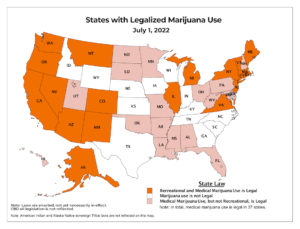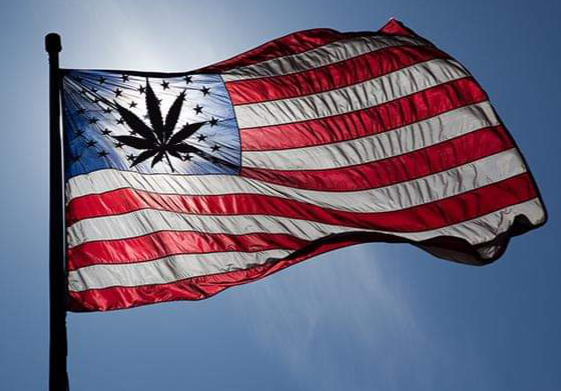What is the Cannabis Legalization Movement – Marijuana Counter Culture?
The Cannabis Legalization Movement and marijuana counter culture is a subculture of diverse people who communicate their interest in cannabis by engaging in cannabis-related activities. Members of the marijuana counter culture practice growing weed, consuming marijuana and educating others about the cannabis plants many uses and benefits. This marijuana counter culture also includes people who use cannabis for its therapeutic and wellness benefits.
Marijuana has been used for recreational purposes since the early 20th century. It was popularized in the 1960s with the counterculture movement and became even more popular with the hippie movement of that decade.
In recent years, marijuana has become legal for medical or recreational use in many countries. As a result, there is an increase in marijuana-related content on social media and other digital platforms.
Cannabis is a plant that has been used for centuries to produce fibers, oils, and food. It is also known as marijuana or weed. There are three main strains of Cannabis plants that can be used for both recreational and medicinal purposes; Indica Cannabis, Sativa Cannabis and Hybrid Cannabis Plants.
The cannabis culture is the culture that surrounds the use of marijuana and its many forms. Cannabis products can be ingested, inhaled or applied topically to skin. The cannabis culture includes fashion, music, art, literature, film, television and games. Cannabis culture has grown in popularity in recent years with the cannabis legalization movement gaining steam across North America.
The cannabis culture is a culture in which the use of cannabis is prevalent. The term “cannabis culture” has been used to refer to the social atmosphere or “milieu:” surrounding cannabis use, including attitudes and behaviors.
Cannabis has been used by many different cultures for thousands of years. It was introduced to Western society in the early 1800s and its use spread rapidly during the twentieth century, especially in North America and Europe before cannabis prohibition began to halt its use in 1916. Prohibition spread through America slowly until 1937 officially made using marijuana illegal in the United States.
How Cannabis Culture Got Started
Cannabis has a long history of human use. The use of marijuana dates back through ancient civilizations and marijuana’s use as an all-purpose resource and wellness promoting plant is well recorded through history. In 500 BC, it has been growing for medicinal purposes in Asia. In America, it was grown by colonists as a resource to be used for creating textiles for clothing and rope and even knitting needles. In 1600, use of cannabis grew immensely because it is a fast-growing plant, and its cultivation if fairly simple and full-proof. Cannabis was not commonly used for recreational purposes until early 1900.
Near the end of 1900, Mexican culture introduced the use of marijuana for recreational purposes in the United States. In fact, the word “marijuana” is the Mexican word for cannabis, in English it translates to “Mary Jane” – a common slang term for cannabis in the U.S. Due to political and racial reasons, using marijuana in any form was declared a crime in America by the 20th century under the Marijuana Tax Act, which imposed the tax on marijuana possession, selling and transfer of cannabis.
Stricter laws were imposed on cannabis use nationwide during the 1970’s with the classification of marijuana as a schedule 1 federally restricted substance and the initiative by Regan era political campaign known as the “War on Drugs”
In 1996, California was the first state to legalize the use of cannabis to treat chcronic pain. In June 2019, Washington DC and eleven other states declared cannabis legalized for recreational and medical purposes. This legalization of cannabis was the result of “grassroots” (no pun intended) campaigns launched by private citizens on social media. The campaigns focused on education about cannabis and the many health benefits of cannabis. So, we can say the bright part of weed history is due to people’s awareness through social media.

Cannabis Legalization is spreading in America and Marijuana use and sale of cannabis products is legal in 19 States in America.
Cannabis in America
Cannabis in America dates back to the colonial era when the government encouraged its use for various purposes. In the 19th century, it was made a part of medicines and started selling in pharmacies for treatment. In the same century, at the end of 1900, during the Mexican revolution, when Mexican immigrants entered the United States, they introduced the use of cannabis for recreational purposes.
But in 1937, Congress passed the Marijuana Tax Act, and in the 1950s, federal law-imposed sentences on marijuana consumption, which criminalized marijuana in the United States. But in 1996, California legalized cannabis for medical purposes and caused tension between federal law and state law, which continues today. So, marijuana legalization in America has a long history with many ups and downs.
What is the Marijuana Legalization Movement?
The cannabis legalization movement is intended to favor the legalization of marijuana in the United States. The legal weed movement started in the late 1960s to reform federal law in regulating marijuana. As a result, 19 states across America have lifted the penalties on possession and consumption of a small amount of marijuana. And a total of 37 states allow cannabis use for medicinal purposes.
This cannabis legalization movement has grown and now people can easily buy and use marijuana for medical and recreational purposes in many States in the U.S.. But unfortunately, this cannabis legalization movement has created a deep divide in some political factions and tense conditions still exist between federal law and the States where cannabis is legal.
Some of the ways this tension plays out is heavy regulatory restrictions and rules that must be adhered to while cultivating or selling cannabis, heavy taxation and censoring and restricting marketing of cannabis products in the way other products can be sold.

Current map shows where Cannabis Legalization is in effect in America. Currently 19 States consider marijuana use for medicinal or recreational purposes legal.
What’s Next for Cannabis Legalization?
Marijuana has gained immense popularity among manufacturers, investors, researchers, and growers. Weed sales reached $25 billion dollars in 2021 and over 44% of Americans now have legal access to cannabis products.
The cannabis industry has continued to create thousands of jobs to cultivate cannabis flower plants, and create specialized high THC content cannabis products like concentrates, live resins, gummies, topicals and tinctures.
The Cannabis Culture of the 1960’s has changed quite a bit and the culture is evolving to be more mainstream each day as the use of cannabis for health and recreation becomes more “normalized.”
Due to the extraordinary characteristics of the cannabis plant and it’s effective use in the medical field to treat various health conditions, we look to a future where sharing knowledge and information about cannabis is married with science to bring us more effective treatments for the common ailments people have found useful to treat with cannabis products. Cannabis legalization extends beyond health benefits as the cannabis industry provides many jobs, a thriving marketplace for cannabis products and contributes to the tax base in State that have set up cannabis legalization.
We’ve entered the next phase in cannabis legalization and marijuana counter culture. The spread of awareness and knowledge of use and it’s effective treatments are being accepted more widely in America than ever before. Cannabis Industry and Private Cannabis Activists play a significant role in educating the public about the safe use of cannabis, cannabis cultivation and science is now open to doing studies to inform us of the safe practices of treating common ailments with cannabis products.
Vibe by California is a vertically integrated California cannabis company with a cannabis dispensary near by in 7 regions throughout California and Oregon. Vibe is community driven and active in spreading awareness and knowledge of safe cannabis use and making access to cannabis products widely available. Vibe is by the culture, for the culture and takes action to be an authentic participant in the growth in the cannabis industry.


